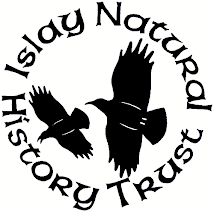 |
| Photo: - James Deane |
Crofting and farming communities have the chance to help sea eagles and their local communities by applying to join a sea eagle management scheme.
It encourages community groups, farmers, crofters and land managers to positively manage land and livestock to reduce the impact of foraging sea eagles whilst improving the birds’ nesting, roosting and feeding areas.
The scheme can also be used to boost the local economy by capitalising on the tourism potential generated by sea eagles.
It is being rolled out across the Inner and Outer Hebrides including Mull and Skye, parts of mainland Argyll and Lochaber, and Wester Ross. A partnership comprising Scottish Natural Heritage (SNH), National Farmers Union Scotland (NFUS), RSPB Scotland and the Scottish Crofting Federation (SCF) helps manage the project.
And staff in local SNH offices are on hand to conduct one-to-one surgeries to explain how individuals and community groups can get involved.
Entrants to the scheme can participate for up to three years and the initiative will be open for applications until autumn 2013.
Ross Lilley, the sea eagle scheme manager, said: “We are delighted to be able to extend this new sea eagle management scheme across their entire breeding range. Our staff will be talking to land managers across the Highlands, Islands and Argyll about it in the coming days and weeks.
“This is a means of allowing land managers to adjust their operations, particularly livestock management, to accommodate the birds whilst the sea eagle breeding population becomes established. But more importantly by accessing start-up funds, communities could generate more benefit from the tourism impacts of having sea eagles in their area.
“Visitors are prepared to inject money into the local economy to view sea eagles and that kind of support could be a massive boost for many areas. We hope that many communities will benefit from the presence of these magnificent birds in their areas.”

















Sadly the nest of Islay failed this year even though we believe the pair hatched chicks. It is thought that they were casualties of the storm on May 23rd. Many other birds nests in exposed locations will also have been lost. The rookery in Port Charlotte was badly affected for example.
ReplyDeleteCarl